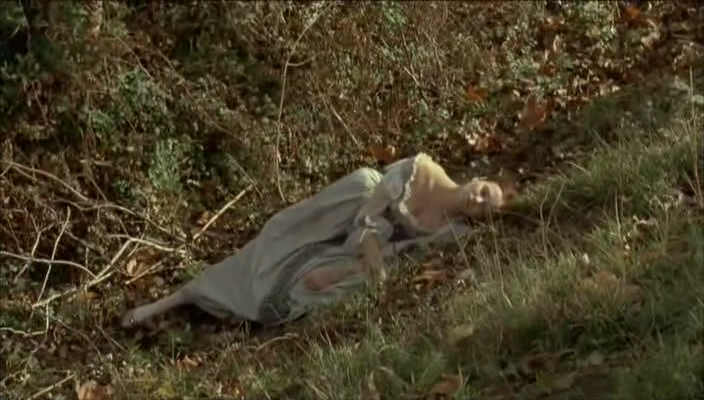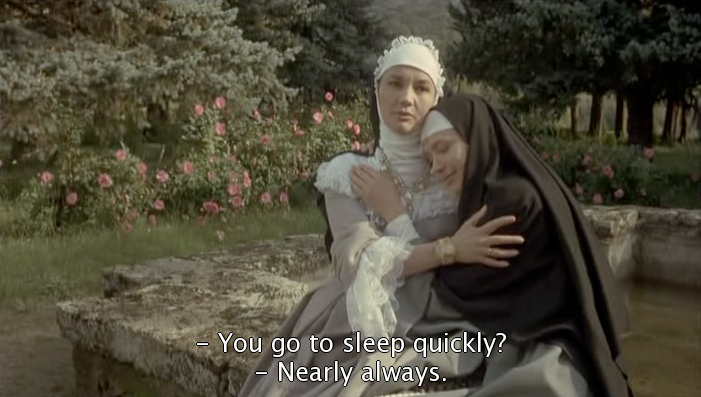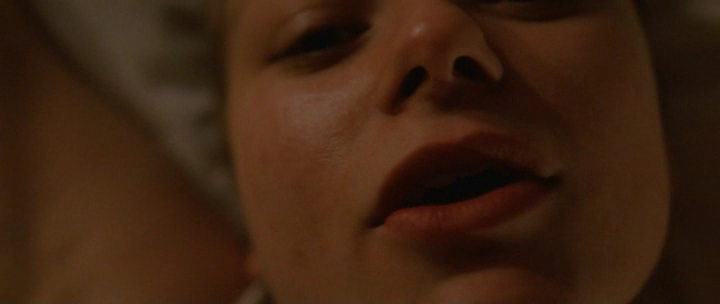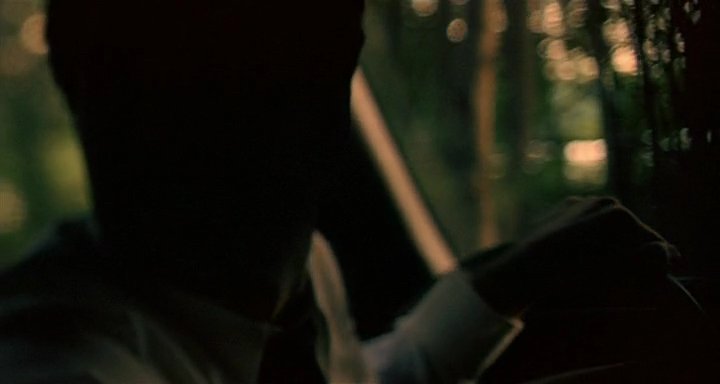Viewing Log #11: I will drive us into the woods [9/7/09 - 9/13/09]
by Ryland Walker Knight


- Code 46 [Michael Winterbottom, 2003] # Samantha Morton is my wife. Or, she's just perfect at this bruised thing. The most poignant sex scene in movies?
- Suspiria [Dario Argento, 1977] Couldn't finish it, or start over, when I realized my eyes weren't lying last night: the DVD Netflix sent me is some half-assed non-mastered bullshit that looks like VHS. Will have to wait for the next time it screens theatrically since all I'm getting from this thing right now is color and The Goblins—and if half of that is blanched and degraded, no thanks.
- In The Cut [Jane Campion, 2003] # A revelation. A totally different, more complex movie than the one I saw in 2003. (Or, you know, I'm different.) Now I see plenty about being othered and threats of skepticism—and, um, gendered trust issues—that were beyond me before. Also, I had a couple of pretty awesome, in-depth talks about it before (enticing) and after (enriching) this second viewing. And, yes, it's sexy. Maybe, though, the wrong thing to watch before bedtime.
- Suspiria [Dario Argento, 1977] Started this and fell asleep shortly after the maggots, somehow, despite all that wailing.
- The Rainmaker [Francis Ford Coppola, 1997] # More rainy day do-nothing cable vision. But this one was better, tho equally dated and moderately maudlin, because of FFC's patience and crisp image-making. Quite a corporate movie, in any case, which seems fitting. Damon's got terrible hair and this is prime Jon Voight scene-gobbling.
- 12 Monkeys [Terry Gilliam, 1995] # So 1995 it's wild, and, really, just not as smart as it wants to be. I tweeted about this to some displeasure.
- La Religieuse [Jacques Rivette, 1966] Finished this. Wow: liberty is falling out of the world? Tough stuff. And, as ever, a perfectly "closed" and "pure" mise-en-scene that keeps things conceptual, no matter the brute and stark (physical) soul-pillaging unfolding in the frame. Karina is amazing, devoted.
- Gloria [John Cassavetes, 1980] # As I noted, I fell asleep shortly into the watch instantly viewing. Gena is kind of my hero, too, and I'm a boy.
- La Religieuse [Jacques Rivette, 1966] The first twenty minutes or so. Crazy theatrical. Quick take: want to see how it plays off Ne Touchez Pas La Hache and its irony, its repression.
- La Bête Humaine [Jean Renoir, 1938] Hastily, drowzily: more noire than bête, it's a fittingly anxious downer that begins in a furnace and plows nose-first into the grave, sooty future. It's best in wordless process, documenting the grime of the job, which becomes any job—plain labor's crud—turning me around a query: perhaps its narrative drive (its locomotion) is too psychological? The score, always operatic, undercuts that, though.
- Le Crime de M. Lange [Jean Renoir, 1936] Since I don't know much about history's specifics (most especially a timeline), I don't want to take the obvious allegorical/political reading too far. Better to trumpet the fluid camera, the charm of each character, the celebratory dinner that ambles out into the crime, the document of a banding bonding. Another "best movie ever."
- L'avventura [Michelangelo Antonioni, 1960] # For Mike, for this. Watching it again makes me feel like I've grown up a lot since the last time (somewhere in early 2006). We men may be evil, but I'd say the circuit of complicity fits. Still, after all that horseplay, I'd never expect a caress like that.


—Let's see how good a kissers we are




No comments:
Post a Comment